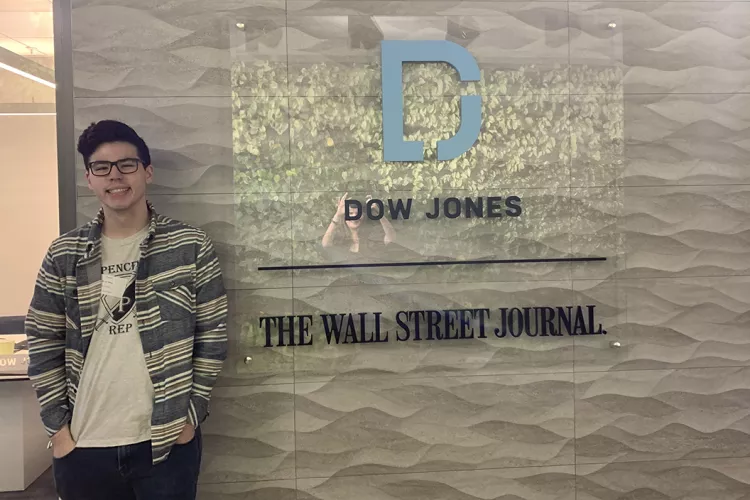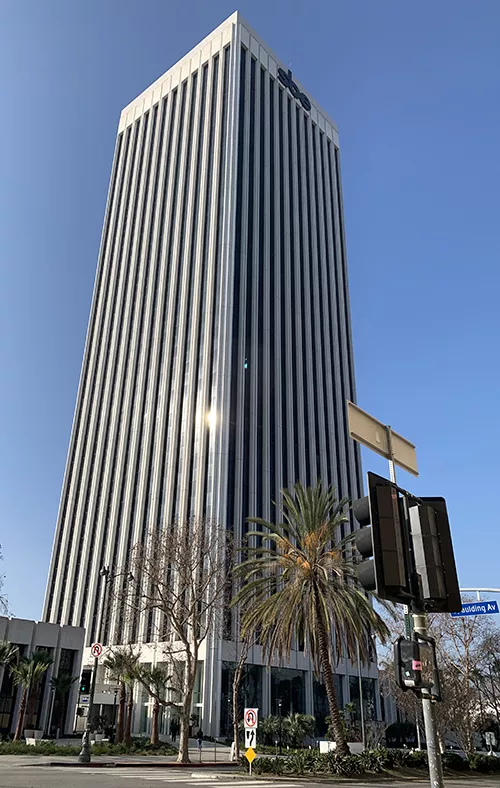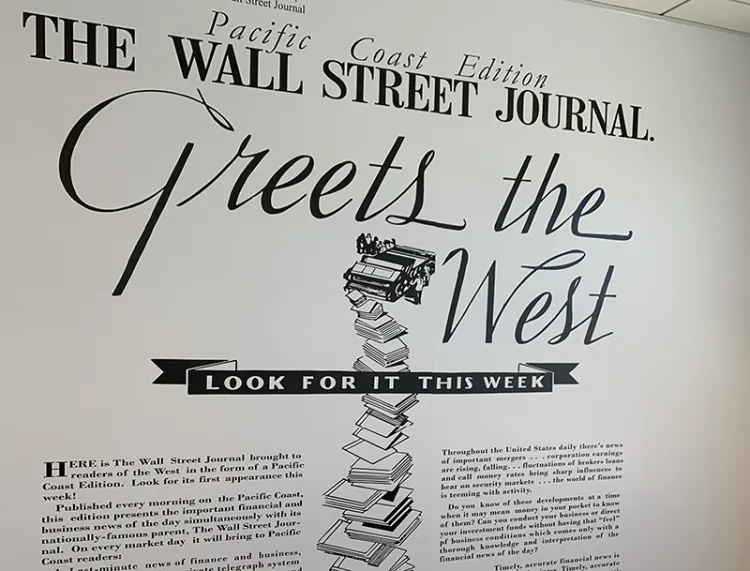A Student Reflects on Extern Week 2020

Bryce Mick ’21 is a classics major and English minor from Bridgeton, N.J. Below, he shares his extern week experience at the Wall Street Journal's West Coast office with host Ben Fritz ’99.
Before I left my externship at The Wall Street Journal in Los Angeles, I thanked one of the reporters there for letting me sit in on her interviews and learn about her job. She, like my extern host, Ben Fritz ’99, the West Coast bureau chief of U.S. news, and many other reporters, let me to take part in her email chains, phone conferences, editorial meetings, and draft revision.
She jokingly said it must have been a boring time for me, but I said no, it was eye-opening. I told her that she might have lost sight of this after working there for some time, but to aspiring writers like me, she was a minor celebrity. Each reporter helps comprise the voices I and millions of other Journal subscribers hear every day.
Even after my flight home to Philadelphia, while I was waiting to get my luggage from the carousel, wearing my WSJ hat, I was stopped by a man who gave me a once-over, smiled, and asked, “You don’t write for them, do you?” He paused, and for a moment I thought he was going to criticize me or the paper, but he followed up with, “You look a little young!” We talked for a while about my externship and the paper. In those moments, I felt both the allure and pressure that comes with such a high-profile publication. And I loved it.

The office of the West Coast bureau of the Wall Street Journal .
I learned a great deal during my time at the Journal. On an average day, the newsroom isn’t 50 people bouncing from phone to desk, frantically taking notes, and shouting across the room. It’s quiet; reporters come and go, taking calls at their desks or in private meeting rooms, occasionally chatting with one another or going out to lunch. Still, it isn’t without its fair share of journalistic banter, with the occasional quip tossed out.
Overall, it was a great environment to work in, as everyone seemed to be friends with one another. Each day I learned more about the job of a journalist, from fascinating articles in progress and extensive writing and editorial processes, to typical and atypical journalism lingo that becomes even more complicated when reporters have their own style of shorthand. (Who would guess “TK” stands for “to come”?)
I felt that my contributions were heard and that I could follow along with the workflow and discussions. This was possibly due in part to my mentor guiding me throughout it all, making sure to give me the proper background information for each conference and phone call. But as time went on, the job felt less intimidating and more doable. I realized that despite how large the Journal loomed in my mind, at the end of the day, the reporters are just people: talented, passionate, and sometimes quirky, for sure, but still just people who have the opportunity to contribute to something much larger than themselves.
That larger image of the Journal and consistent voice readers are familiar with is the result of an extensive editorial process in which the writer’s work is filtered to meet the editor’s vision, then by further higher-ups to presumably meet the Journal’s vision. The amount of quality assurance is so remarkable that even if the reporter’s vision isn’t precisely met, one can’t say it was due to a lack of concern, but rather too much of it. And sometimes reporters will fight the editors on their decisions, or the visual departments might disagree with the web presentation of the story, but still, the paper appears on subscribers’ driveways each day.

Mick praised his Wall Street Journal experience and the support he received from bureau chief and mentor Ben Fritz ’99: “The opportunity he and the externship program gave me has helped to solidify my career direction and reaffirm that I could not be happy without writing in my life.”
The job essentially calls for a group of people with individual passions and interests, separated across the nation in bureaus, to create a consistent and quality product. As any student can attest, group projects like this are rarely functional; the more voices you add to the mix, the less succinct it becomes. It doesn’t sound like it should work, but somehow it does. There is a certain magic to it all. The process of crafting a newspaper winds up looking like its physical rendition: scattered, a patchwork of stories and voices that miraculously find unity in the disjunction.
If someone told me I would one day be eating burgers with writers and editors of The Wall Street Journal, I wouldn’t believe them. So, of all the things I learned during my externship, the most astonishing is that such an ideal job for me exists, and that with persistence I might have it one day. For that, I can’t thank Ben enough. The opportunity he and the externship program gave me has helped to solidify my career direction and reaffirm that I could not be happy without writing in my life.



